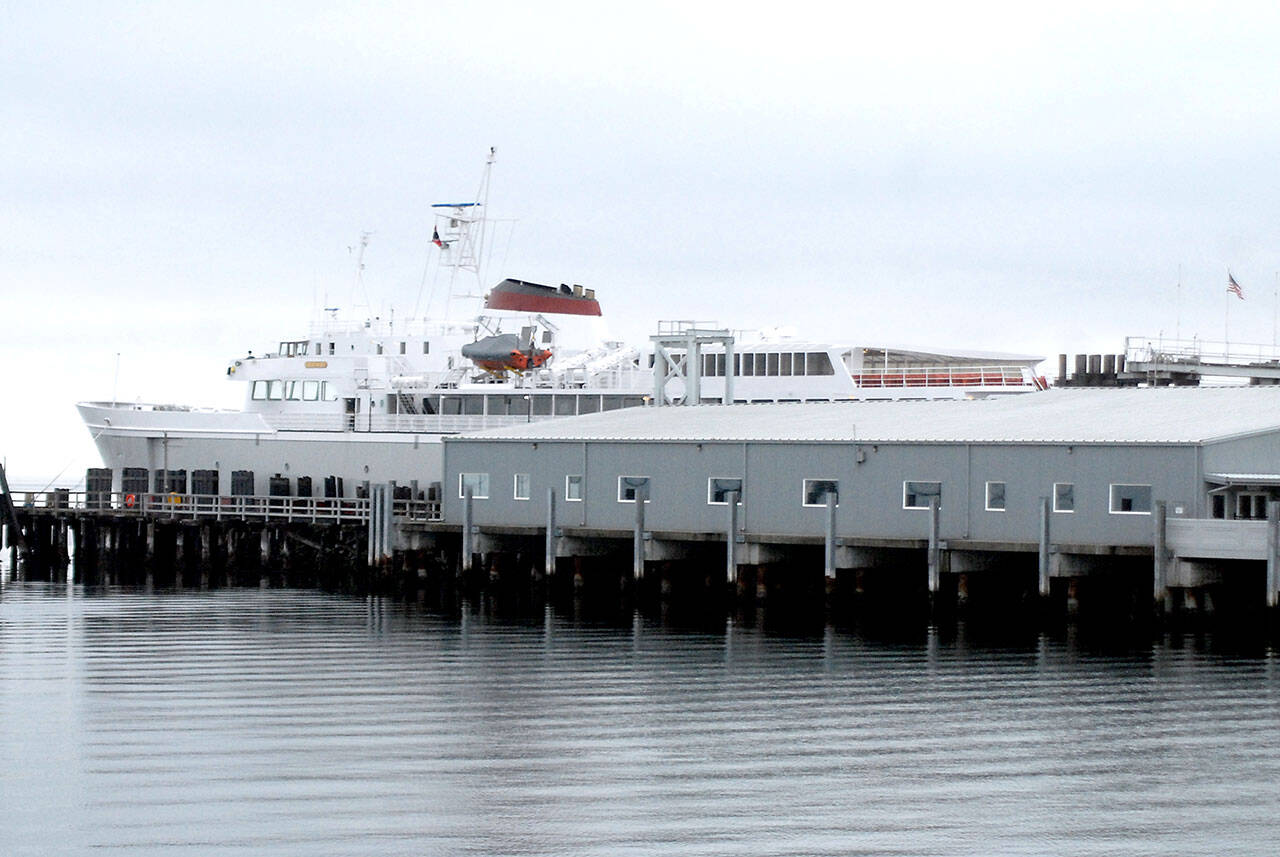The Coho ferry will resume round-trip service Nov. 8 to Victoria, Black Ball Ferry Line President Ryan Burles said Tuesday.
“It is wonderful news,” he said. “It’s great.”
Service was suspended March 30, 2020, due to the COVID-19 pandemic.
Burles said polymerase chain reaction (PCR) tests that cost between $100 and $200 will be required of visitors — even those who have been vaccinated — traveling to Canada.
This is a financial hurdle likely to limit short holiday trips to destinations such as Butchart Gardens and Victoria’s shopping district, Burles noted.
“That’s going to be a big burden, not just the cost, but the logistics,” he said.
“Same-day travel will probably be pretty much nil, and overnight travel is going to be muted.”
The PCR test requirement also applies to Canadians returning to their country.
Burles said he expects the resumption of service will meet pent-up demand of Canadian “snowbird” travelers headed for warmer climates such as Arizona, and that, by the time they return, the PCR test may no longer be required.
Black Ball will ramp up service by spending a $3.1 million Coronavirus Economic Relief for Transportation Services grant that must be used within one year of receiving it.
About 20 Black Ball employees are working, and 55 more will be added for scheduled sailings from a workforce of 120 employed during the peak season.
“We got this money, so let’s get this going,” Burles said.
The Coho will depart from Port Angeles daily at 8:20 a.m. and 2 p.m. and will depart from Victoria at 10:30 a.m. and 4 p.m.
The 61-year-old vessel will be in dry dock at the pier it leases from the Port of Port Angeles from Jan. 4-17 for maintenance even though it’s been kept seaworthy for the last 19 months, its horn enticingly tested every few weeks.
There’s only one Coho, Burles cautioned.
“We tend to always err on the side of caution and try to be as consummate with that ship as we can. That ship is really in top shape for its age, and we just want to keep it that way.”
The U.S. land border has been closed to non-essential travelers since early 2020. The U.S. government announced last week that Canadian travelers can start visiting the U.S. on Nov. 8.
Canadian travelers must be fully vaccinated but do not need to produce a negative COVID-19 test to enter the U.S.
Canada opened its borders in August to fully vaccinated Americans who must still provide PCR proof they are COVID-19-free.
“Travel testing is at cost and often runs $150 or so,” Dr. Allison Berry, health officer for Clallam and Jefferson counties, said Tuesday.
The test is $175 at Jim’s Pharmacy in Port Angeles and is not billed to insurance.
Olympic Medical Center does not administer the test for travel purposes, hospital spokesperson Bobby Beeman said.
Walgreen’s does not charge for PCR tests for travel purposes, a pharmacy technician said Tuesday.
Canadian tourism and business groups have been calling on Canada to drop the PCR-test requirement, according to dailyhive.com. The Public Health Agency of Canada will make that decision, Burles said.
Travelers from the U.S. must submit their travel information through ArriveCAN at canada.ca within 72 hours before their arrival.
They must provide contact information and travel details, vaccination information and pre-entry test results plus a quarantine plan that includes a 14-day quarantine location if a person develops COVID-19 symptoms or tests positive while in Canada.
Marc Abshire, executive director of the Port Angeles Chamber of Commerce, said while he does not expect many Americans to be traveling to Victoria until the PCR test requirement is dropped, he does expect to see lots of Canadians disembarking the Coho in Port Angeles.
“I think it’s really brave of Black Ball to go ahead and start this service,” Abshire said.
“We are really excited. We can’t wait to hear the horn on a regular basis again, and hopefully it will inspire Canada to drop the PCR test, since that boat is going to be coming into Victoria Harbour without many Americans on board,” he said.
“Until they get rid of that PCR test, you can’t really say the border is really, fully open.”



